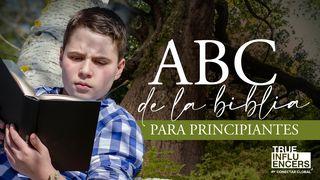Asking God WhyMuestra

God Understands When You Feel Life is Unfair
Why do bad things happen to good people? Amazingly, Nathan considers his injury a gift from God. Find out why and find out how God wants to restore you in your time of suffering.
Finding Comfort In The Midst Of Life's "Whys"
Jenny threw her fork down on the dinner table. “It’s not fair. Johnny got the biggest piece of pie, and he got the biggest piece of cake yesterday!”
Children begin life with a need to take everything in. Their life depends upon taking the first breath, taking in their mother’s milk, taking in the world through their eyes and ears to make sense of this new place, and learning to reach out and grasp hold with their tiny fingers.
Yet, children will not live long unless they also learn to let go, learn to give up that which they have received, and learn how to share. Unless a child lets go of his first breath he will soon die; unless a child releases her bladder and bowel she will poison her body. If a child never learns to release his grasp, he will be imprisoned by his own clutching.
As the child grows, parents teach the child to share. Children learn to share their toys, their food, their space and their time. Thus, early in our lives we are taught to live by a standard of fairness. Further, and importantly, we also learn that though we share, we will still have enough. Moreover, we soon appreciate that when we share we gain our parents’ approval. So it is that we learn to wait our turn; we learn not to cut in line; we learn to refrain from taking what is not ours—these are ways we learn to share. Soon we feel that we are good when we share, and we feel guilty when we don’t.
As we grow up, however, we discover that life is not always fair. We learn that people do not share equally. Perhaps our hearts were broken when someone we loved decided to leave us. Perhaps we lost money we had saved for years. Perhaps we were injured in an accident, or have had an extended illness. Perhaps someone deliberately harmed us or someone we love.
From these very specific disappointments, we may have decided that all of life is unfair. From one or two major depressing events in our lives, we may have been tempted to make a big jump—to choose to believe that life itself is not fair.
Difficult events may lead us to join the author of Ecclesiastes in saying:
“So life came to mean nothing to me, because everything in it had brought me nothing but trouble. It had all been useless; I had been chasing the wind” (Ecclesiastes 2.17).
When children try to understand why life is unfair they may think it is because they are bad or someone else is bad. Throughout history, people of faith have given several causes for why bad things happen to good people:
Our search to find meaning in life’s difficulties—to find the “why”—seems to be an inescapable aspect of being human. We search for explanations to life’s crises. We want to know why difficult, and sometimes horrible, things happen to us, to those we love, and even to strangers.
- Bad things happen to good people because God is testing us.
- Bad things happen to good people because of other people’s sinfulness.
- Bad things happen to good people because of the sins of our ancestors.
- Bad things happen to good people because God is teaching us something.
- Bad things happen to good people because God is punishing us for some sin we are not aware of.
Yet, often there is a nagging sense that the answers we provide are not soul satisfying. If God is testing us, or punishing us, or trying to teach us a lesson, or if we suffer because of the sinfulness of others or our ancestors, we may find temporary satisfaction in an “answer” to the unfairness of life. In some way, these explanations seem to have some fairness to them.
But, and this is a big “but,” somewhere deeper in our spirits a voice says, “This is not the God I know; this is not the kind of God I can give my heart to.” These solutions to life’s unfairness may not bring us a full sense of peace. These answers may leave us with the uneasy question: “How is God going to teach me or punish me or test me in the future?” These solutions may leave us with a stern, distant God, less interested in a relationship with us, and more interested in enforcing a set of rules or dogma, often at our expense.
Other people, perhaps less religiously-oriented, would say the reason that bad things happen to good people can be explained by science. People get sick because of viruses and germs. People attack other people because they “lack impulse control,” or have suffered an abusive childhood. People are injured in traffic accidents because of the laws of physics.
Yet such answers seem to describe more of the “how” than they describe the “why.” A mother, who learns that she has inherited a rare disease and will probably die before her children are grown, may know “how” she came to be ill—it was hereditary—but still agonize over the question “Why?” How can it be fair that she will not survive to see her own children live into adulthood? And more troubling to her still is the question of how can it be fair that her children may have inherited this same disease.
The question “Why?” as regards the unfairness of life is often at its most basic level not a question at all. Rather it is a statement. The statement is something like this: “What happened to me is unfair. I don’t deserve this. I am angry about this. No explanation about why this happened to me would be good enough, because it is not fair. I won’t let go of being angry until somebody, until God, fixes this. I am just going to be angry, because what happened to me is unfair.”
For this reason, if we find ourselves not satisfied with answers as to “how” something happened—I was distracted, or I was drunk and my car ran into you—we still find ourselves continuing to ask “Why?” We are probably protesting that something unfair has happened to us, that we do not want to accept what has happened to us, that we are angry about what has happened to us, and that we do not intend to change our attitude until someone or God fixes it.
What we may be most angry about is that the universe and God are different from what we want them to be. As children, we were taught that to be good and to win our parents’ approval and safe keeping we needed to learn how to share, to be fair. As adults, a part of us continues to believe that we will always be safe if we are good. We believe if we share with others, if we are good to others, life will be fair to us.
We discover through illness, accident, crime, natural disaster, and through the hurts that other human beings cause us, that life is not always fair. We would like to stomp our feet, cry, and say, “It’s not fair!” As adults we may do this by asking “Why?” When no answer satisfies us, and we continue to ask “Why?” we know that protest lies at the bottom of our question.
This study is based on the assumption: “Life is often unfair.” The answer to “why” remains an open question or perhaps even a mystery. How, in the midst of the mystery, do we cope with the unfairness of life?
BY CHAPLAIN JULIANA LESHER, M.DIV., BCC, AND CHAPLAIN DICK MILLSPAUGH
Escritura
Acerca de este Plan

Why do bad things happen to good people? Why there is so much suffering in life? When life feels unfair, and the world feels broken, you need to know there’s a God who understands and wants to restore all things. In this plan, you will learn how grieving, hoping, and gratitude can help you make sense of your suffering.
More
Planes relacionados

Confiando en Los Propósitos De Dios

Testigos Del Milagro: La Primera Navidad
Marcas De Un Discípulo

La Gracia. 7 Claves Para Vivir en Plenitud.

ABC De La Biblia Para Principiantes

1 Tesalonicenses: Modelos a imitar

ABC De La Oración ... Para Principiantes.

Que El Mundo Crea
